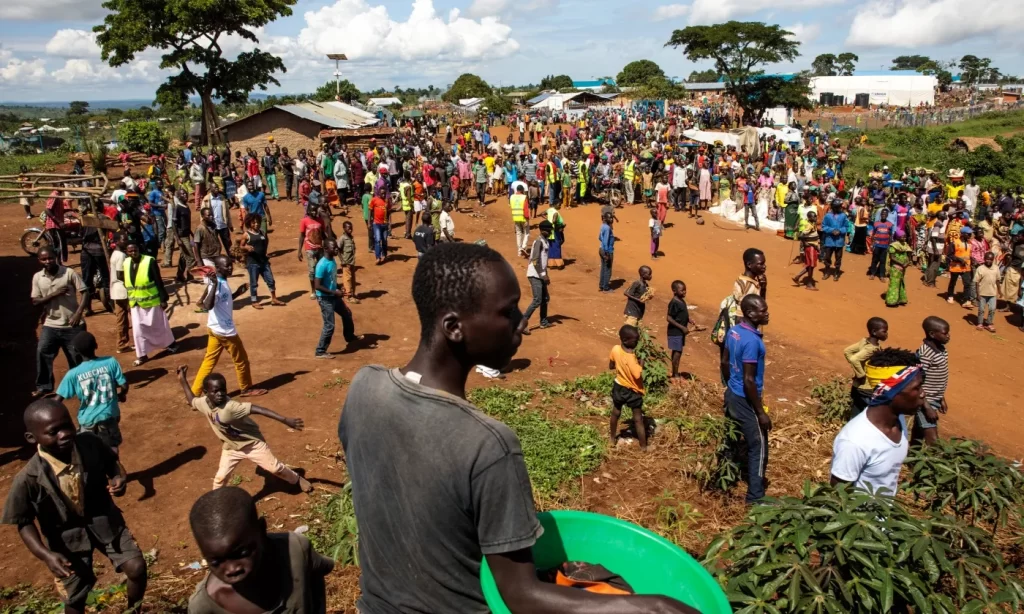Thousands of refugees in Uganda struggle to get by, amid cuts in humanitarian aid
2 min read

In Uganda, thousands of refugees are facing severe hardships due to significant cuts in humanitarian aid. Among those affected is Agnes, a mother of six who fled the Democratic Republic of Congo (DRC) as violence encroached on her home.
In Uganda, only the most recent arrivals receive comprehensive food assistance, leaving many, like Agnes, to fend for themselves. Although she has managed to find work since her arrival, she reports that her family often goes hungry. “The money we used to receive helped us buy food, soap, and clothes for our children. Now we do not get any support, and we feel hopeless. Our children roam around barefoot, wearing dirty clothes, and suffering from skin infections due to poor nutrition. Life is challenging in every way. They are not even attending school. If I don’t sell myself, I can’t afford their school fees,” Agnes lamented.
Uganda, known as the largest refugee-hosting country in Africa, has long been celebrated for its generosity towards those fleeing conflict in neighboring nations. Currently, the country is home to approximately 1.7 million refugees, making it a critical refuge for those seeking safety. However, humanitarian workers and officials have raised alarms about the inadequacy of international aid.
Filippo Grandi, the UN High Commissioner for Refugees, has called for increased funding to address the dire situation. “We receive $50 billion annually to support operations worldwide, but we need significantly more. How do we fill all these gaps? This is why we must mobilize development assistance,” he emphasized. The urgency of the situation is evident, as the United Nations reports that around 10,000 new arrivals enter Uganda each month, many of whom are escaping the recent conflict in Sudan that erupted in April 2023.
Despite Uganda’s warm welcome, the ongoing cuts in humanitarian aid threaten the well-being of its refugee population. For families like Agnes’s, the reality is stark: without adequate support, survival becomes a daily struggle. The situation highlights the pressing need for both immediate and long-term solutions to ensure that refugees receive the assistance they desperately require.